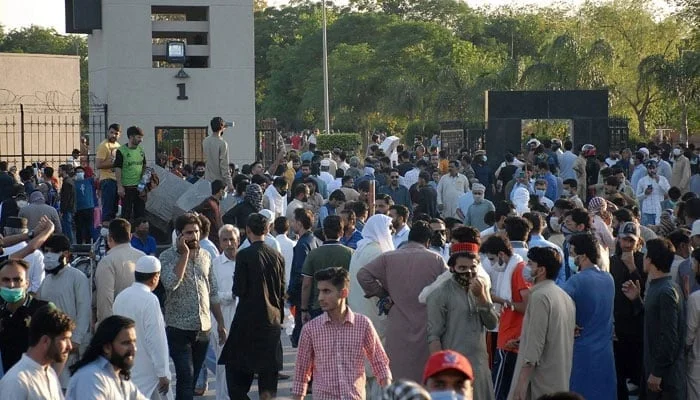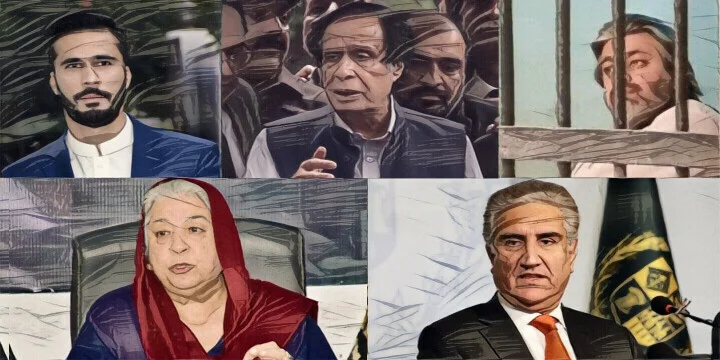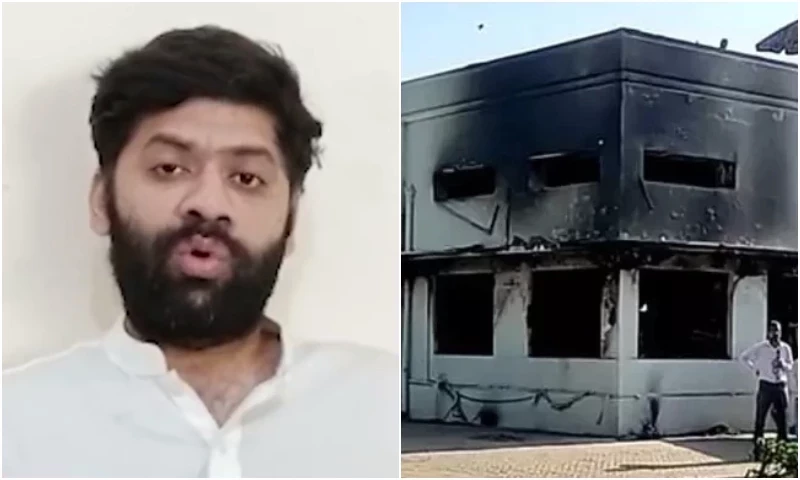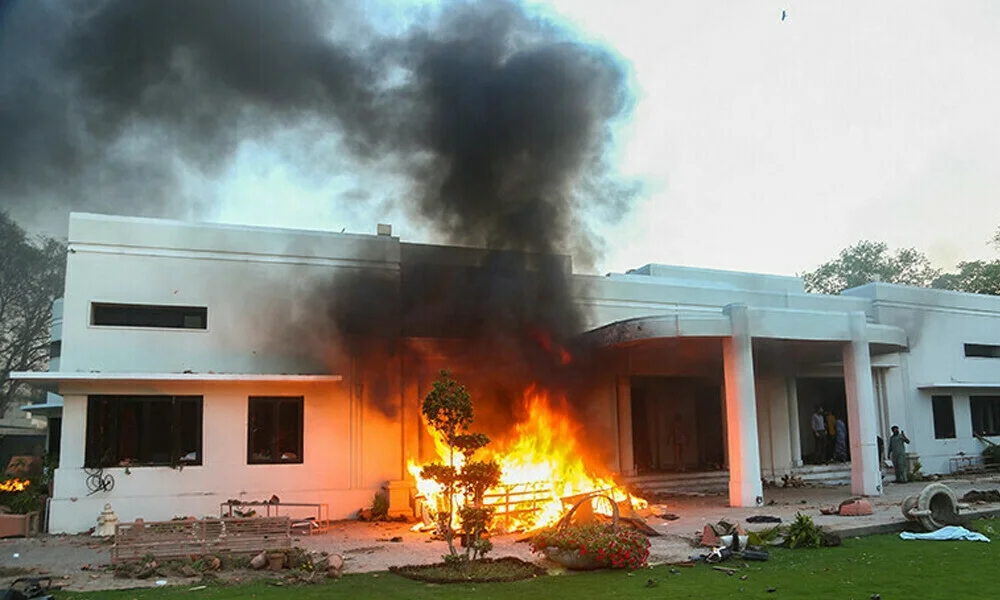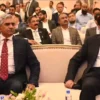The May 9th incident refers to a series of violent acts carried out by supporters of the Pakistan Tehreek-e-Insaf (PTI) party. The violence escalated to the point where military installations were attacked and the Corps Commander House in Lahore was burned. This included the destruction of historical monuments and the martyrdom of members of the Pakistan Army. The vandalism extended to military installations, Radio Pakistan, and Askari Tower. This event has indeed cast a long shadow over Pakistan’s political scene. The PTI supporters’ attack on military installations and the burning of the Corps Commander House in Lahore was a shocking display of violence. It was a day that will be remembered as a ‘black day’ in Pakistan’s history. The fact that a political party’s supporters would resort to such actions is deeply troubling. This stark episode not only stirred wide condemnation from the government and military but also from the public and the families of the Pakistan Army’s martyrs.
The Political Ramifications:
Erosion of Public Trust:
The violence perpetrated by PTI supporters has significantly tarnished the image of the party, causing an erosion of public trust in not only the PTI but also the political system as a whole.Identification and Arrest of Perpetrators:
The Punjab Police identified and arrested hundreds more involved in the attacks. The Special Branch analyzed extensive video and photo evidence to profile suspects. In the aftermath, over 3,200 people were arrested. All those arrested were PTI supporters involved in the May 9th incident.
Impact on PTI:
The May 9th incident has had a significant impact on PTI. The party has faced a downfall, with many of its leaders leaving the party. PTI supporters, including those residing abroad, continue to provoke people on social media. However, the party has not achieved any significant gains from this incident.Leadership’s Stance:
The apparent lack of condemnation from the PTI leadership, including Imran Khan, has raised questions about the party’s stance on such acts of violence.
Party Defections:
The fallout from the incident has led to a number of defections within the party. This internal fragmentation could significantly weaken the PTI’s political standing and influence. Several PTI leaders, including Shah Mahmood, Shahbaz Gill, Hammad Azhar, and others, were named and shamed by security officials and PTI workers. Despite the violence, Khan did not condemn the May 9th riot. This lack of condemnation from PTI leaders is concerning and suggests a tacit approval of the violence.
In my perspective, it was deeply troubling to hear PTI leaders openly advocating for violence. Their use of phrases such as “Go to GHQ” to incite their supporters was, in my view, a reckless act that could have potentially escalated the situation further.
Evidence Used for Arrests:
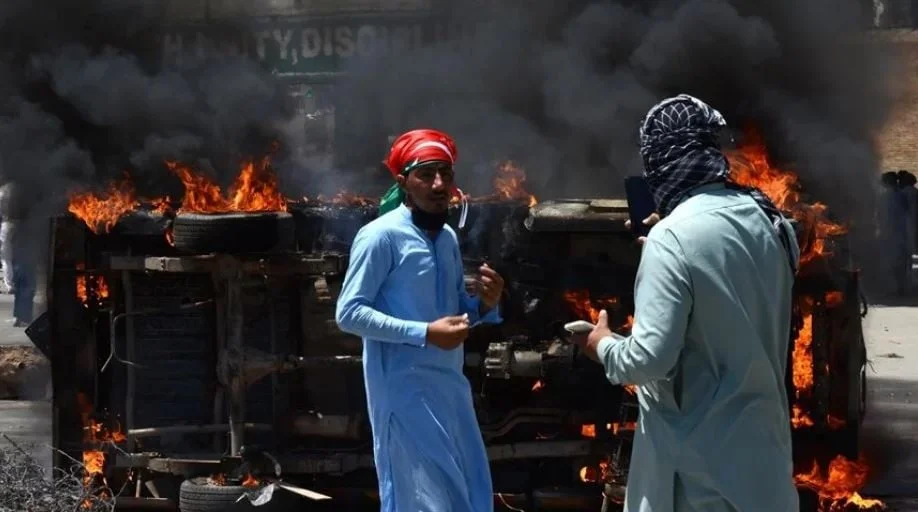
Authorities used video and CCTV footage as well as information gathered from WhatsApp groups to compile a list of those responsible. The use of geo-fencing, social media surveillance, and CCTV was also reported, enabling authorities to identify the alleged perpetrators. In the aftermath, over 3,200 people were arrested for their involvement in breaking into buildings and setting sensitive places on fire. All those arrested were PTI supporters involved in the May 9th incident.
Government and Military Response:
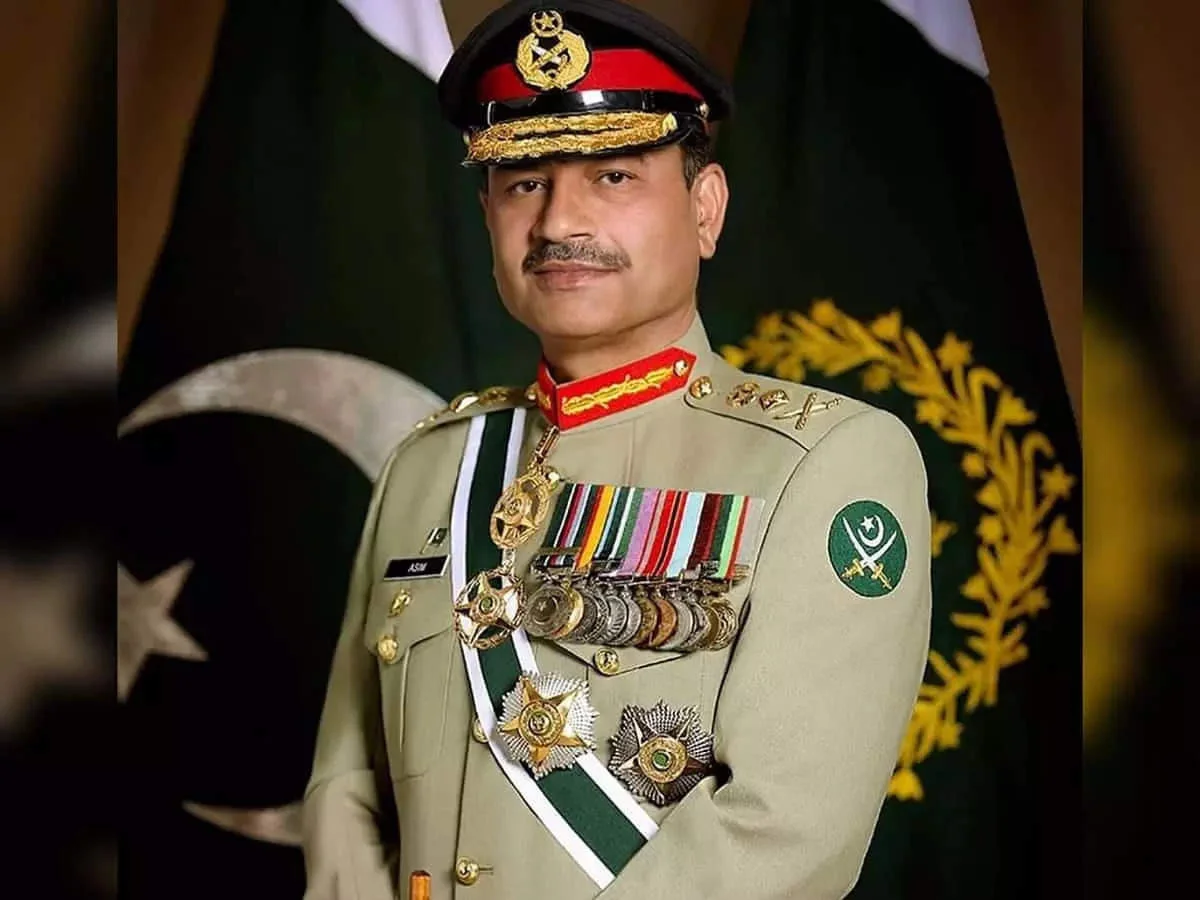
Army Chief Response:In my view, the Army Chief’s response to the riots was a testament to the commitment to uphold the rule of law and maintain peace. His emphasis on bringing those involved in these egregious crimes against the military installations and personnel to justice, through trials under relevant laws of Pakistan, including the Pakistan Army Act and Official Secret Act, was a strong statement of intent.
His stance left no room for ambiguity: the violent acts were not spontaneous but a calculated attack on military installations. His reiteration that the army demonstrated extreme patience, prudence, and restraint during the riots, in my opinion, showcased the disciplined and measured approach of the military in handling such volatile situations. This, I believe, is a reflection of their dedication to maintaining stability and order in the face of adversity.
Legal Charges Against PTI Leaders:
Imran Khan, along with his deputy Shah Mahmood Qureshi and others, face charges under multiple severe offenses including murder and terrorism, specifically for their roles in the attack on the Corps Commander House.Financial Allegations:
The leaders are also accused of looting valuables worth over 150 million rupees from the Jinnah House, adding a financial dimension to the legal proceedings.
What was the response of the Pakistan Army against the rioters?
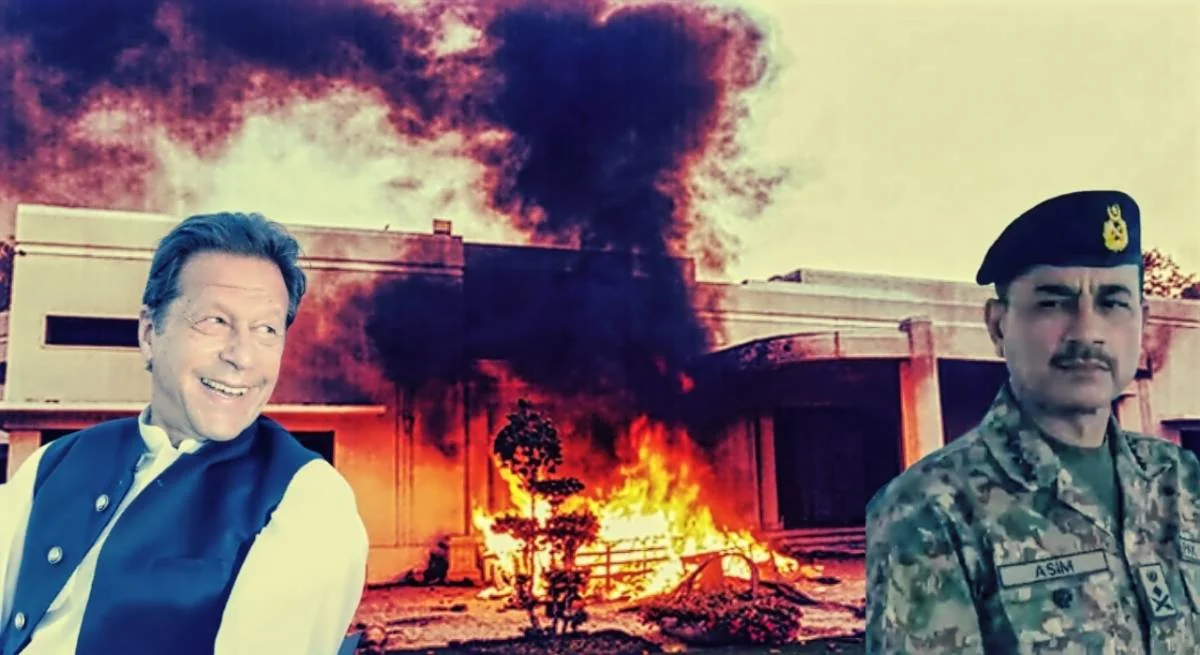
In my opinion, if the Pakistan Army had responded aggressively to the rioters, the situation could have escalated further, potentially leading to more violence and chaos. The army’s restraint likely prevented additional harm and maintained a degree of order during a highly volatile situation. It’s important to note that any response from a military force in such situations must balance the need for maintaining law and order with respect for human rights and the principles of proportionality. An aggressive response could risk causing harm to innocent bystanders, escalating tensions, or inciting further violence. Therefore, the Pakistan Army’s measured response likely played a crucial role in preventing the situation from spiraling out of control.
The Path Forward for PTI:
From my perspective, the path to redemption for PTI lies in a series of necessary actions. First and foremost, PTI needs to openly and unequivocally condemn the May 9th incident. This is not just about issuing a statement; it’s about acknowledging the gravity of the situation and the harm caused. Secondly, PTI should cooperate with law enforcement agencies and hand over those involved in the riot. This would demonstrate their commitment to justice and the rule of law.
Thirdly, an open apology is needed. An apology would signal remorse and a willingness to make amends. It’s not just about saying sorry; it’s about expressing genuine regret for the actions that took place on that day. Lastly, PTI must assure the public that such a mistake will not be repeated. This assurance needs to be backed by concrete actions that show a commitment to peaceful political engagement.
Only by taking these steps can PTI begin to rebuild its reputation and regain the trust of the Pakistani people. It’s a long road to recovery. The May 9th incident was indeed a dark day in Pakistan’s history. It served as a stark reminder of the potential dangers of political unrest and the importance of peaceful protest. As we move forward, it is crucial that all political parties, including PTI, learn from this incident and work towards fostering a peaceful and stable political environment.This incident should serve as a wake-up call for all political parties to prioritize peace and stability over political gains. It’s a lesson in the importance of responsible leadership and the need for political parties to act in the best interest of the nation, even when faced with challenging situations. The future of Pakistan depends on our ability to learn from our past and strive for a more peaceful and stable political environment.
